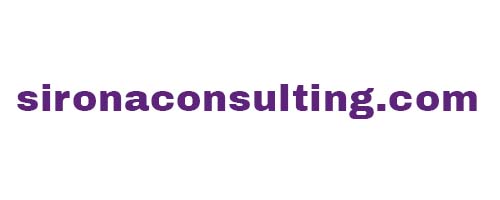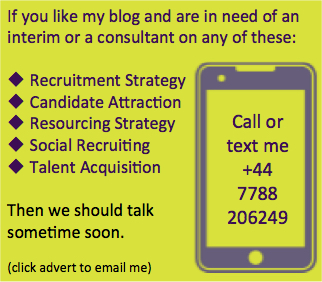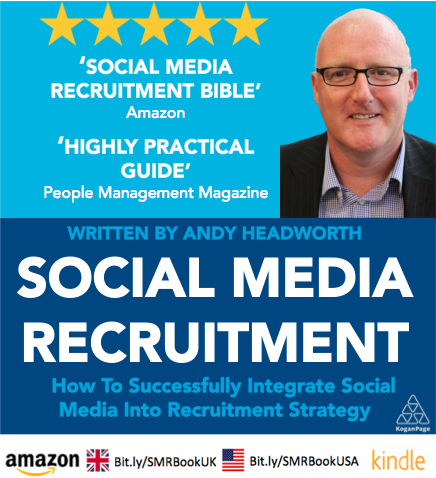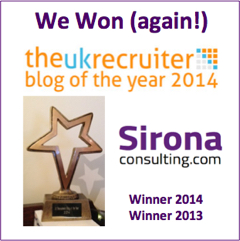Is using social media websites to reference candidates wrong?
Today’s post is a change from my planned one - why? - because of an international ‘discussion’ that I was involved with on Twitter this morning, started on Justin Hillier’s blog post entitled Social Media candidate background checks.
The subject matter is seemingly simple, but it evokes some very strong opinions from people, so I thought I would bring it into my blog for some (no doubt heated) debate!
The question is:
Is using social media websites to reference check candidates wrong?
Let me just state where I am coming from on this first (well it is my blog!).
Legally, this is of course a minefield. If a company deliberately or publicly use sites like LinkedIn or Facebook, for example, to ‘research’ candidates prior to interview selection, then they have to declare that as part of their selection procedure. If the company doesn’t do this for every candidate and have set defined comparative criteria, then they are wide-open to litigation.
So the best answer is to not do it at all.
However, the reality of this is that this sort of thing happens every single working day…..unofficially. Most line managers and recruiters think nothing of doing a ‘quick’ Google search or LinkedIn search to ‘check’ the credentials of CV’s that have been presented to them >> and this has been going on for years. Rightly or wrongly this is the real world we are now living in. Personal information is now everywhere as people use Facebook, LinkedIn, Twitter in the huge numbers they are.
There are some people - in this morning’s Twitter banter - namely the ”feisty” Aussie Justin Hillier, the ‘stuck in the 90’s’ Gareth Jones, ‘man of reason’ Matt Jessop and the ‘Aussie behind a tree’ Aaron Dodd, that think differently! Here is the Twitter stream from this morning (click on the image to expand it to see the content):
If you can’t see this then let me just paraphrase the discussion (well sort of……):
Justin: He accepts professional ‘snooping’ but objects (strongly) when it steps over the line into his private life. Obviously he has whole wealth of Aussie Facebook pictures and stories he is trying to hide!!
Gareth: He is still stuck in the era of Wham and Rick Astley. He hasn’t yet realised that there is this internet ‘thingy’ and what it can do! A healthy dose of reality check is needed, the next time he visits the doctor!
Aaron: The Aussie man of reason who obviously speaks sense all the time! (Well he did agree with me didn’t he?)
Matt: As always, Matt is the reality checker - he reminded us that maybe the blame should be put at the feet of the candidates for a change. After all they are the ones who put the content online in the first place weren’t they? Did anyone force them to do it?
It is a good job, we (all of the above) enjoy the healthy debates like this - otherwise there could some serious altercations!! Ha ha ha. Don’t forget to follow us all - @andyheadworth, @garelaos, @aarondodd, @justin_hillier, @matt_jessop - on Twitter to see where these discussions go next!!
What do you think?
Do you agree with me and Aaron that it happens anyway, and that stopping it (the unofficial part of it anyway) is futile?
Do you agree with Matt, that the candidates should take more responsibility?
Do you agree with Gareth that everything is illegal until proved otherwise and that the internet should be banned for recruiting?
I think this discussion may well go on for a while……….

If you like reading this blog, then click on the orange RSS icon here and get the latest Sirona Says posts delivered to your RSS reader or your inbox the moment they come out.

-
Alconcalcia
-
Matt Jessop
-
Gareth Jones
-
Stephen O’Donnell
-
Jo Jordan
-
Stephen Turnock
-
Keith Robinson
-
Peter Gold
-
Ann Marie van den Hurk, APR
-
Andy Headworth
-
Andy Headworth
-
Andy Headworth
-
Andy Headworth
-
Andy Headworth
-
Andy Headworth
-
Andy Headworth
-
Andy Headworth
-
Andy Headworth
-
Tom Webb-Skinner










